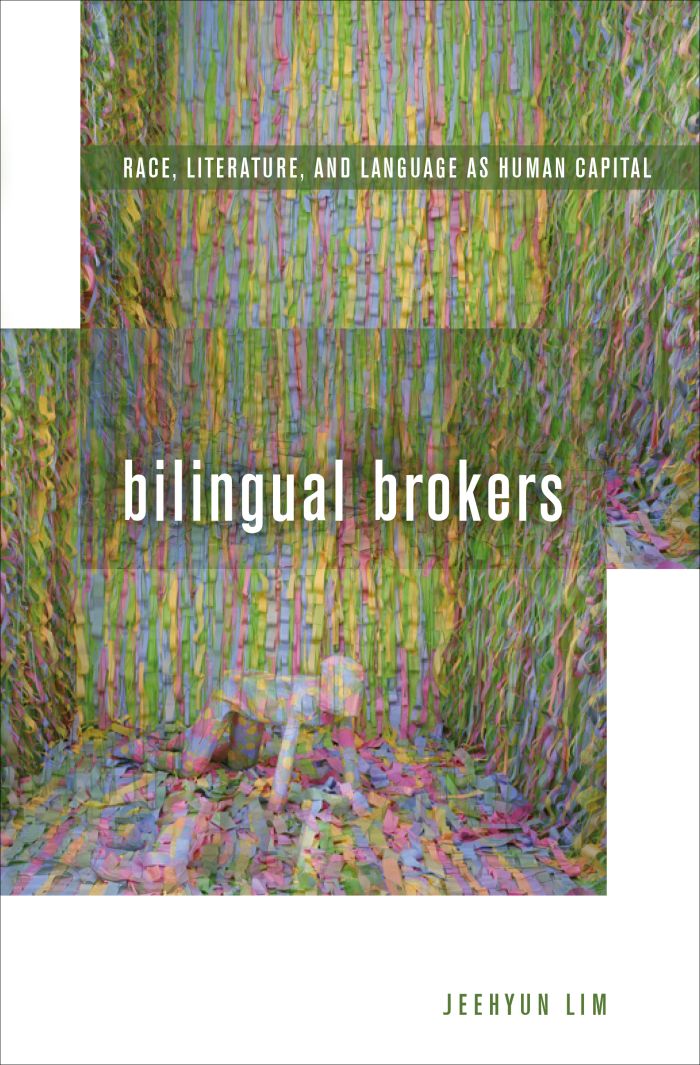Bilingual Brokers
Race, Literature, and Language as Human Capital

This book can be opened with

Reading Asian American and Latino literature, Bilingual Brokers traces the shift in attitudes toward bilingualism in postwar America from the focus on cultural assimilation to that of resource management. Interweaving the social significance of language as human capital and the literary significance of English as the language of cultural capital, Jeehyun Lim examines the dual meaning of bilingualism as liability and asset in relation to anxieties surrounding “new” immigration and globalization.
Using the work of Younghill Kang, Carlos Bulosan, Américo Paredes, Maxine Hong Kingston, Richard Rodriguez, Chang-rae Lee, Julia Alvarez, and Ha Jin as examples, Lim reveals how bilingual personhood illustrates a regime of flexible inclusion where an economic calculus of one’s value crystallizes at the intersections of language and racial difference. By pointing to the nexus of race, capital, and language as the focal point of postwar negotiations of difference and inclusion, Bilingual Brokers probes the faultlines of postwar liberalism in conceptualizing and articulating who is and is not considered to be an American.
Bilingual Brokers offers a compelling and convincing account of the shifting reception and representations of bilingualism, as it has been received in a predominantly monolingual American culture and society. It probes with insight the implications of these changes for Asian Americans and Latino communities, especially since the dramatic demographic changes in the size and constituencies of both following sweeping reforms in immigration law and global economic restructuring in the 1960s.—Crystal Parikh, New York University
Bilingual Brokers is a timely contribution in its discussion of capital, liberal person hood, and possessive individualism in today's political moment concerning immigration and belonging of persons of color in the United States.—Journal of Asian American Studies

